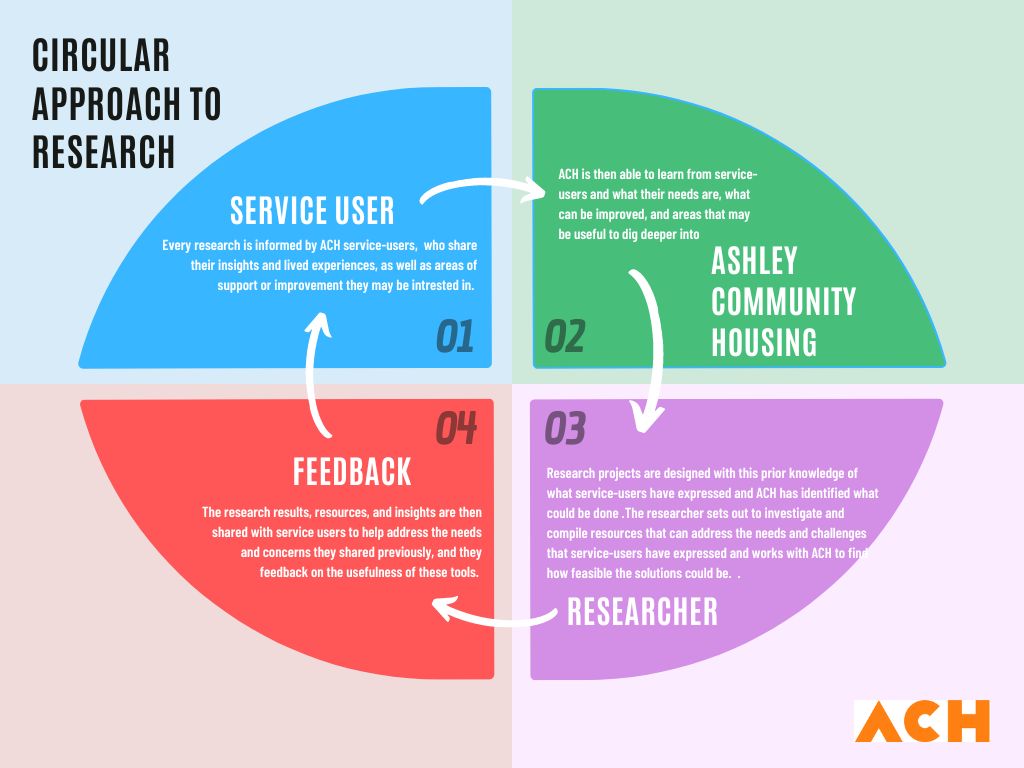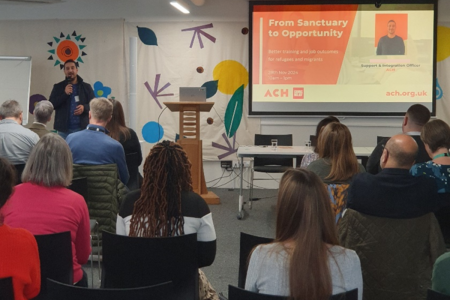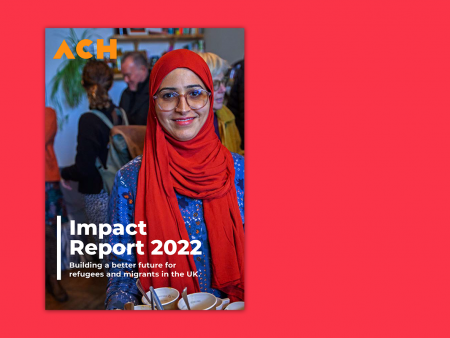
The Benefits of Co-Creation and Accessibility in Research
Research can be an amazing opportunity for progress, understanding and knowledge expansion. But why do we do research? At its core, research seeks to explore the unknown, answer pressing questions, and provide evidence-based solutions to real-world problems. However, traditional research methods often fall short of truly capturing the needs and perspectives of all those involved in the research.
In this blog, we will delve into the concepts of co-creation and accessibility in research.
What is Co-Creation?
Co-creation in research refers to a collaborative process where researchers and participants work together throughout the research journey. This approach ensures that the voices, needs, and priorities of all stakeholders are integrated into the research design, implementation, and dissemination phases. Unlike traditional top-down research methods, co-creation fosters mutual respect, shared ownership, and practical relevance.
How Has This Been Achieved in This Research?
In our recent project, we designed the research with the active involvement of ACH service users. By engaging these individuals (primarily migrants and refugees) in the research process, we aimed to delve deeper into their priorities and needs. This was achieved through compiling previous insights and feedback shared by ACH service users and planning a research project that would address the points they raised directly. This participatory approach allowed us to tailor the research questions and methodologies to better reflect the lived experiences and aspirations of the community.
ACH and UoB: A Circular Approach
The collaboration between ACH and the University of Bristol (UoB) epitomises the benefits of merging grassroots work with academic rigour. ACH’s extensive fieldwork and community engagement, combined with UoB’s scholarly expertise, created a robust framework for the research. Adding to that, the research project is a direct response to the feedback given by service users, and they have participated in the research as well, we are able to have a circular approach that was both empirically sound and deeply rooted in the community’s realities. This is incredibly important for co-creation and accessibility, as this feedback loop allows research to be more active than passive. Active research is informed by the people the researcher aims to research, which results in the co-creation aspect of this project. In the image below, you can see how this feedback loop emerges.

What is Accessibility?
Accessibility in research refers to making the research process and outcomes easily understandable and usable for all participants, regardless of their backgrounds or abilities. This involves breaking down barriers that may prevent individuals from fully engaging with or benefiting from the research.
Why is Accessibility Important for Research Participants?
Accessibility is crucial, particularly when researching vulnerable demographics such as migrants and refugees. These groups often face significant barriers, including language, cultural differences, and socio-economic challenges. Enhancing accessibility ensures that their perspectives are genuinely represented and they can fully participate in and benefit from the research.
How Has Increased Accessibility Been Achieved in This Project?
In our project, we implemented several strategies to enhance accessibility for participants:
1. Mind Maps for Easier Digestion of Information: Visual aids such as mind maps were used to present complex information in a more digestible format. This helped participants quickly grasp key concepts and interconnections within the research.
2. Hyperlinks for Easy Navigation: We included hyperlinks within the participation information sheet and the literature review. This allowed participants to easily navigate through the documents and access relevant sections without feeling overwhelmed.
3. Plain Language and Avoidance of Jargon: We consciously avoided academic jargon and used plain language throughout the research materials. This ensured that participants could easily understand the content, regardless of their educational background.
4. Focus on Providing Resources, Not Just Extracting Information: Our research approach was not solely about gathering data from participants. We also aimed to provide valuable resources and support to them, ensuring a reciprocal and beneficial relationship.
5. Multiple Mediums to Collect Data: The survey that has been distributed to participants includes various ways for them to engage, by giving the option to respond questions in written form or upload an audio or video file of them responding orally.
Benefits of Enhanced Accessibility
By prioritising accessibility, we ensured that participants could engage with the research process meaningfully. This not only enriched the quality of the data collected but also empowered participants, making them feel valued and respected. Additionally, accessible research findings are more likely to be utilised by policymakers, practitioners, and the community, leading to tangible improvements in services and support for migrants and refugees.
Research is a powerful tool for advancing knowledge and fostering social change. However, its true potential is unlocked when co-created with the people it aims to serve and made accessible to all stakeholders. By embracing co-creation and accessibility, researchers can ensure that their work is not only academically rigorous but also practically relevant and impactful.
In our project, the collaboration between ACH and UoB and our commitment to accessibility have demonstrated the profound benefits of these approaches. As we continue to navigate the complexities of the modern world, let us strive to make research a more inclusive and empowering endeavour for all.
Note: This blog was written by Victoria Cornelio Diaz.


